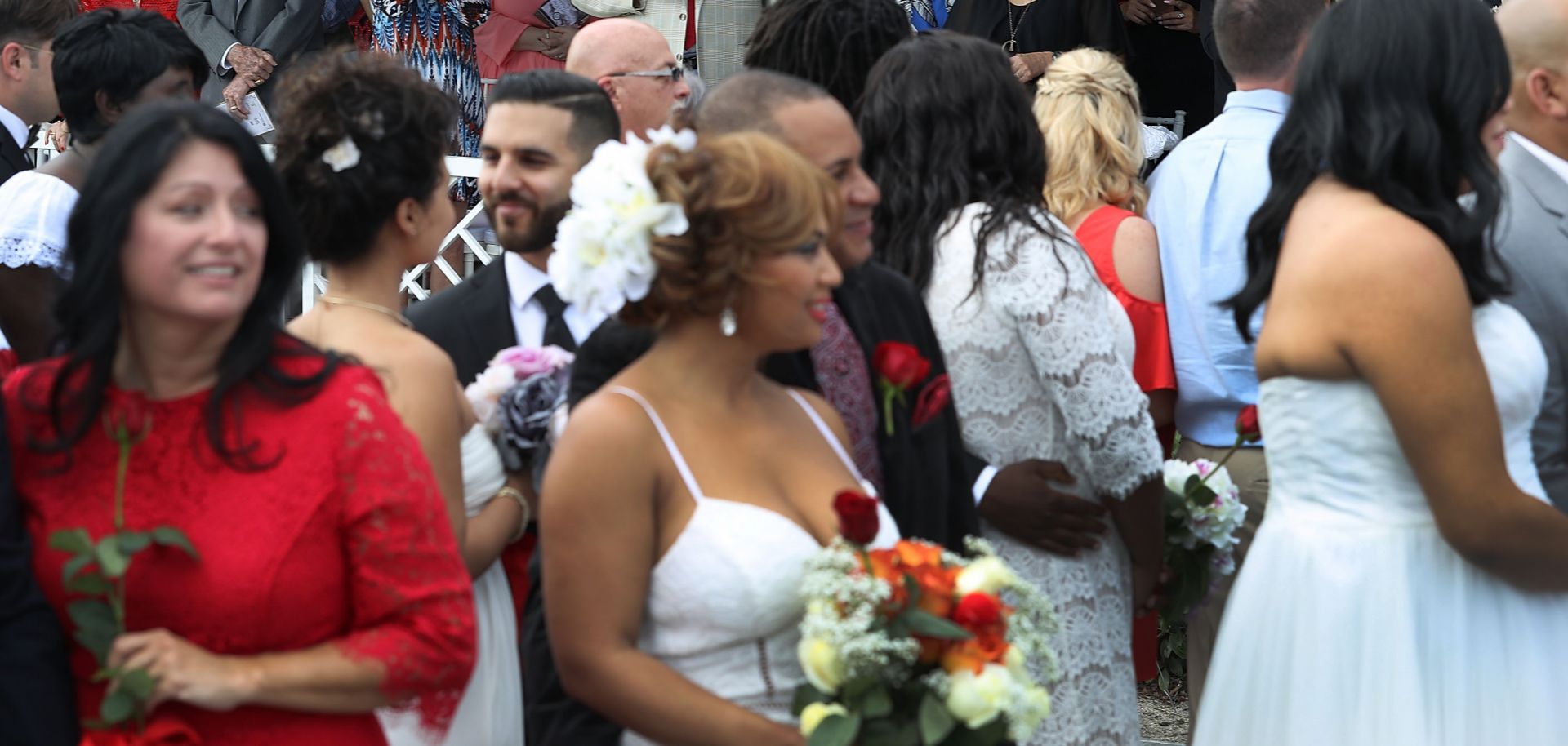GLOBAL PERSPECTIVES
The World's Leading Strategic Alliance

Aug 3, 2019 | 10:30 GMT

About 40 couples participate in a group Valentine's Day wedding ceremony in West Palm Beach, Florida. The forms and functions of marriage have changed dramatically many times in the past as societal conditions changed.
(JOE RAEDLE/Getty Images)
Highlights
- About half of adult Americans continue to see marriage as an important strategic alliance that provides material and psychological benefits that outweigh its costs.
- But the forms and functions of marriage have changed dramatically many times in the past as societal conditions changed and the balance between the benefits and costs of marriage tilted one way or the other.
- As American society continues to change, it's not hard to imagine most people playing a different kind of marriage game, opting for other alliances that offer better versions of marriage's benefits at lower costs.
Subscribe Now
SubscribeAlready have an account?
